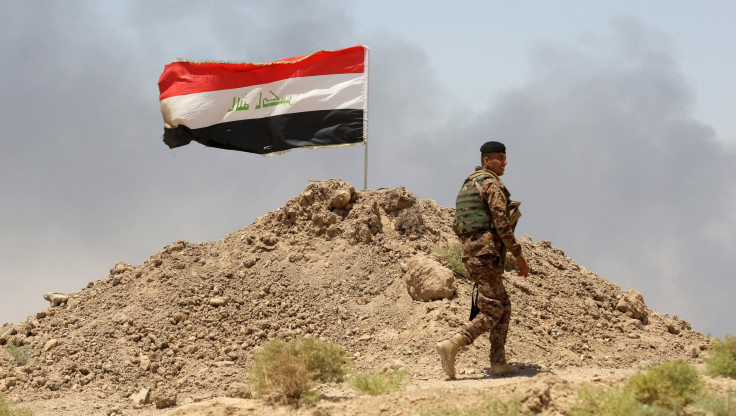Why is Iraq Excluded From Trump's New Travel Ban? Revised Executive Order Drops War Zone From List Of Banned Countries

The White House unveiled a new version Monday of its executive order placing temporary restrictions on immigration from several Muslim-majority countries after the previous order was blocked by the courts. The new version is more narrow than the initial executive order issued in January, and also has one less country than the previous version.
Iraq is no longer included in the travel ban, which now lists six countries — Sudan, Iran, Libya, Somalia, Syria and Sudan — instead of seven. So what changed in Iraq, a nation that Islamic State group calls home?
According to a fact sheet distributed by the White House, the Iraqi government has "taken steps to increase their cooperation with the United States in the vetting of Iraqi nationals and as such it was determined that a temporary suspension is not warranted."
At a press conference announcing the ban on Monday, Secretary of State Rex Tillerson said the State Department had been looking for ways to strengthen vetting processes for travelers from the countries on the list, and those efforts had concentrated on Iraq.
"Iraq is an important ally in the fight to defeat ISIS, with their brave soldiers fighting in close coordination with America's men and women in uniform," Tillerson said. "This intense review over the past month identified multiple security measures that the State Department and the government of Iraq will be implementing to achieve our shared objective of preventing those with criminal or terroristic intent from reaching the United States."
Few countries have done more to fight the Islamic State group than Iraq. The Islamic State is currently fighting to maintain it's grip on Mosul, the last Iraqi city controlled by the terrorist organization. Iraqi leaders were angry their country was included in the travel ban, even going so far as to pass a "reciprocity measure" that would place restrictions on Americans entering Iraq and "pressure the American administration to reconsider" the travel ban, according to Deputy Parliament Speaker Sheik Humam Hamoudi.
CNN cited a senior U.S. official who said Iraq government officials lobbied at the highest levels to have their country removed from the list of banned nations. Some of the highest-ranking members of Trump's cabinet also pushed for Iraq to be excluded from the new executive order, including Tillerson, Secretary of Defense James Mattis, and national security adviser Gen. H.R. McMaster, CNN reported.
© Copyright IBTimes 2024. All rights reserved.












